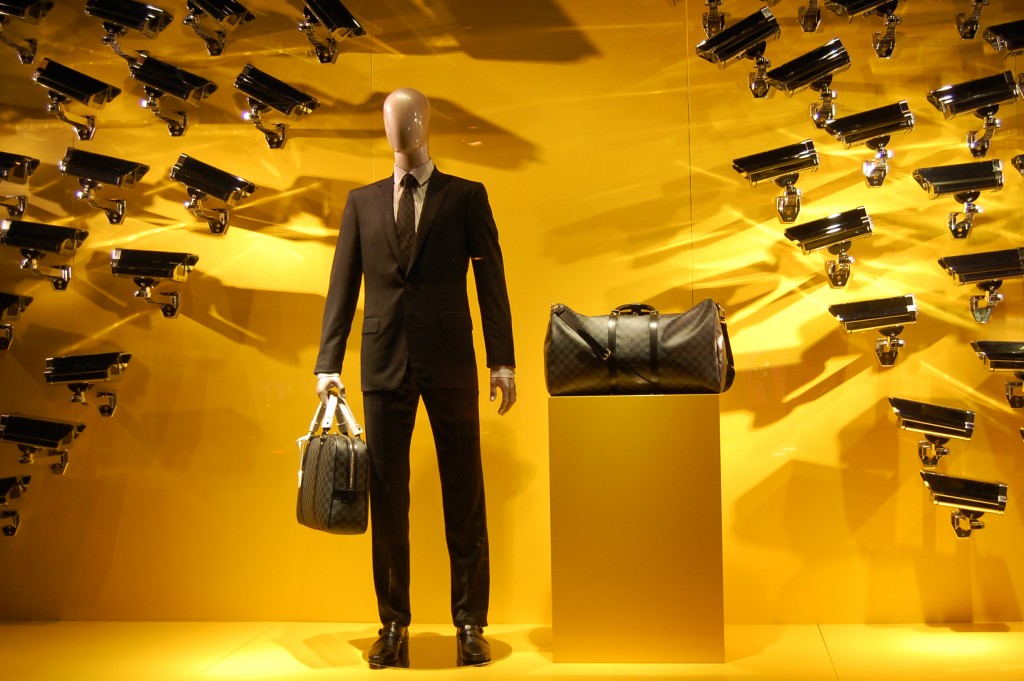 Most of us here at Cyborgology have written at least one post about augmented warfare and revolution. I suggested that the panopticon has moved to the clouds, and PJ warns that we may soon see it descend into a fog. In the wake of the Arab Spring, we have all commented on what it means to have an augmented revolution (also here, here, and here). The Department of Defense is well aware of this global trend, and is dumping lots of money into understanding how to maintain what I will call online superiority. Just as nations fight for ground, air, and sea superiority in a given conflict, they must now maintain a presence in online meeting spaces. Surveillance and intelligence efforts have always been a part of warfare, and monitoring and disrupting information flows has always been a tactical advantage. While previous engagements in informational warfare have been about information exchange, what we see now are efforts to gain online superiority in order to directly disrupt physical, financial, or tactical resources.
Most of us here at Cyborgology have written at least one post about augmented warfare and revolution. I suggested that the panopticon has moved to the clouds, and PJ warns that we may soon see it descend into a fog. In the wake of the Arab Spring, we have all commented on what it means to have an augmented revolution (also here, here, and here). The Department of Defense is well aware of this global trend, and is dumping lots of money into understanding how to maintain what I will call online superiority. Just as nations fight for ground, air, and sea superiority in a given conflict, they must now maintain a presence in online meeting spaces. Surveillance and intelligence efforts have always been a part of warfare, and monitoring and disrupting information flows has always been a tactical advantage. While previous engagements in informational warfare have been about information exchange, what we see now are efforts to gain online superiority in order to directly disrupt physical, financial, or tactical resources.
society
The Cyborgology editors dropped in on artist Jonathan Monaghan‘s studio to discuss his art and how it relates to technology and our contemporary world.
The impetus for my animation “Life Tastes Good” was seeing different depictions of polar bears on television. If they are selling soda, they are having a great time, if they are illustrating climate change, they are dying slow painful deaths. I decided to mix this disparate imagery into a new schizophrenic reality using the same 3d animation tools as those Coke commercials. These alternate digital realities I create in my work are both familiar and alien; playing with our desires, dreams and anxiety.
Jonathan Monaghan’s work is art in the age of hyperreality. Baudrillard offered hyperreality as a bloated, obese and dying environment liquidated of meaning, and here we see the simulated polar bear literally expiring on the screen. Monaghan has turned the simulated polar bear against itself by reintroducing it to the real. more...
The Cyborgology editors dropped in on artist Jonathan Monaghan‘s studio to discuss his art and how it relates to technology and our contemporary world.
The impetus for my animation “Life Tastes Good” was seeing different depictions of polar bears on television. If they are selling soda, they are having a great time, if they are illustrating climate change, they are dying slow painful deaths. I decided to mix this disparate imagery into a new schizophrenic reality using the same 3d animation tools as those Coke commercials. These alternate digital realities I create in my work are both familiar and alien; playing with our desires, dreams and anxiety.
Jonathan Monaghan’s work is art in the age of hyperreality. Baudrillard offered hyperreality as a bloated, obese and dying environment liquidated of meaning, and here we see the simulated polar bear literally expiring on the screen. Monaghan has turned the simulated polar bear against itself by reintroducing it to the real. more...
